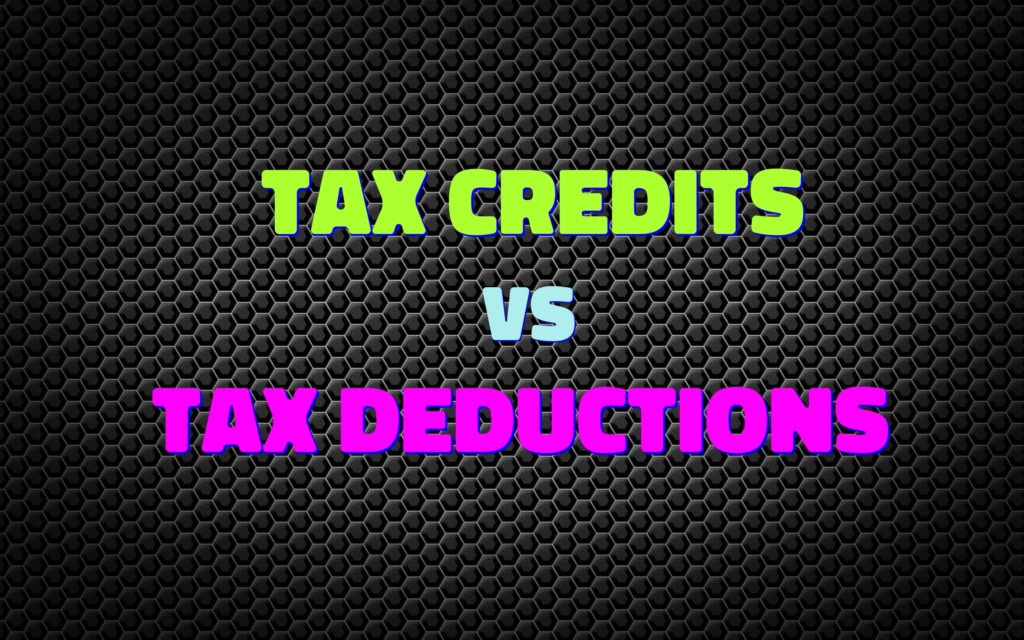Tax credits and tax deductions are two different types of tax breaks. Both can lower your tax bill, but they work in different ways.

What is a tax deduction?
A tax deduction is an expense that you can subtract from your yearly income. Deductions are taken before you calculate how much of your income is taxable. That means you should subtract any tax deductions from your income before you calculate your tax bill.
What is the standard deduction?
The standard deduction is a set dollar amount that the IRS allows you to subtract from the income you report. Most taxpayers are eligible, and you don’t need to keep track of any receipts or records to take this write-off. The amount of the standard deduction depends on a few factors:
- Your filing status
- Your age (and your spouse’s age if applicable)
- Whether you or your spouse are blind
- Whether you can be claimed as a dependent on someone else’s tax return
Here are the most up to date standard deduction amounts for the tax year 2019.
| Filing Status | Deduction Amount |
|---|---|
| Single | $12,200 |
| Married Filing Separately | $12,200 |
| Married Filing Jointly | $24,400 |
| Qualifying Widow(er) | $24,400 |
| Head of Household | $18,350 |
Taxpayers over age 65 or who are blind are eligible for an additional standard deduction amount of $1,300. On the other hand, taxpayers who can be claimed as a dependent on someone else’s tax return may receive a lower standard deduction.
What are itemized deductions?
Itemized deductions are specific expenses you can write off if you are not taking the standard deduction. It’s good to itemize if your total deductions exceed your standard deduction amount, or if you don’t qualify for the standard deduction. Itemizing is slightly more complicated because you must keep detailed records of the expenses you claim on your tax return.
Examples of itemized deductions:
- Work-related education expenses
- Business travel expenses
- Casualty, disaster, and theft loss
- Business use of your home or car
- Charitable giving expenses
- Home mortgage interest
- Medical & dental expenses
- Deductible state, local, and foreign income taxes
What is a tax credit?
A tax credit is a dollar-for-dollar amount that can be subtracted from your tax bill once you’ve calculated how much you owe for income tax.
A credit will fall into one of two categories:
Non-refundable tax credit: A credit that can bring your tax bill down to $0. But any remaining credit does not come back to you in your refund.
Example: Adoption Tax Credit
Refundable tax credit: If the amount of credit is greater than what you owe for taxes, you receive the remaining portion in your refund.
Example: Earned Income Tax Credit (EITC)
Refundable tax credits are a larger benefit because if the credit you claim is more than your total tax bill, you can keep the difference.
Is a tax credit or a tax deduction better?
One isn’t necessarily better than the other. A tax break is a tax break, and every little bit helps.

